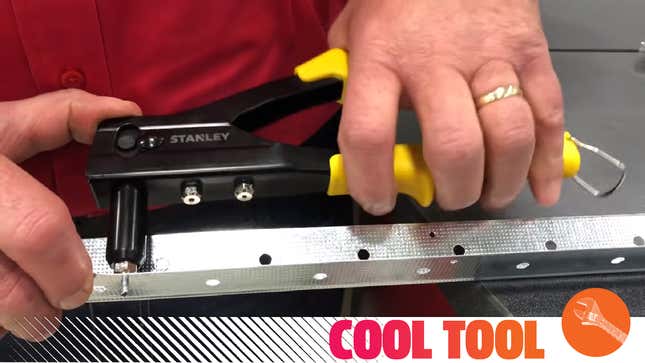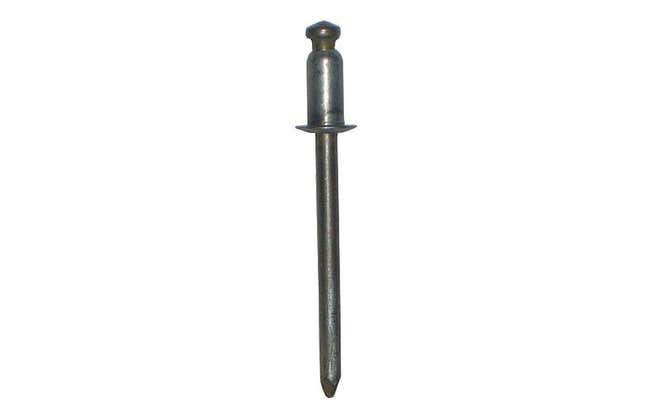
It seems like there are a million ways to attach stuff to your car. You can use adhesives, rivet nuts, bolts or if you’re some type of savage, there are zip-ties. Self-tapping screws also get used a lot, even when there are way better options out there. Here’s another way to slap things together for a lasting hold.
Over the last few weeks we moved our car projects around with ease with wheel dollies, knocked off stuck parts with an air hammer and took another look inside of engines with a borescope. This week’s Cool Tool is a pop rivet gun, another way to join two parts together.
This suggestion comes from reader Fred, who noted pop rivets as an alternative to rivet nuts.
In my travels I see far too many gearheads trying to attach things to their cars and off-road rigs with self-tapping screws. Sure, they get the job done but I rarely find a self-tapping job that lasts. The next time I see their vehicles those screws have either worked themselves out or there are dozens of them holding the part on.
You may feel inclined to use something like a self-tapping screw or a bolt for custom bodywork, underbody modifications or interior parts. I’ve seen them used in RV repair, where you may need to join metal panels together. I’ve also seen them used for just about everything from fender flares and rust repair to skid plates and race car interiors. You may also want a certain industrial kind of aesthetic for your project.
There is another and probably more fun way to attach things and that’s pop rivets.
These little fasteners are great for when you want to join parts together and you really want them to stay that way for a while. Or maybe you want to give your hot rod a certain kind of look.
How these work is similar to how the rivet nut works. You first drill a hole, then you insert the pop rivet into the gun. From there, you shove the whole unit into the hole and let the gun rip. Check out this handy animation:
The result is that you now have two parts that are mated together, mechanically locked. Pop rivets look cleaner than self-tapping screws, too. Like the rivet nut, these are also great for when the other side of the parts you’re mating is blind and inaccessible.
The rivets themselves come in a variety of materials and sizes. Monel rivets are notable for their strength in marine and aviation applications, so they should work fine on a car.

Of course, there are some downsides to using pop rivets. The obvious one is that you shouldn’t use them on parts you’re expecting to take apart anytime soon. You’ll also want to be careful working with different metals as you could cause galvanic corrosion. And thin rivets may not be as strong as a comparable bolt.
The Stanley pop rivet gun in the Ace Hardware video above is cheap, but it has a bunch of negative reviews. Instead, here’s the Marson 39000 HP-2. It’s well-rated and about $36.
If you’re one of those folks out there with shop air, you can pick up an air riveter that can dispatch rivets really quickly. Here’s a well-reviewed Astro Pneumatic Tool PR14 for about $95.
These tools and their rivets come in a wide range of prices depending on material, application and how they’re powered.
Do you know of a weird or unique tool that could help a backyard mechanic? Do you want to see us put a type of tool to the test? Shoot me an email or drop it down below!